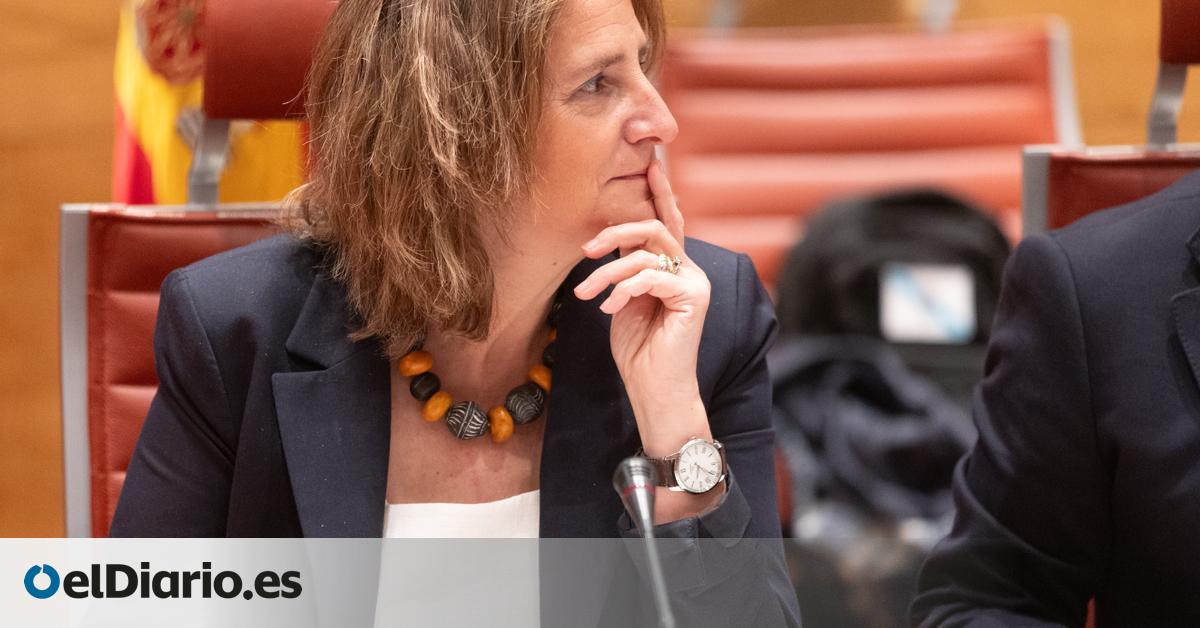
The head of the PSOE list for the European elections on June 9, Vice President Teresa Ribera, could follow in the footsteps of her predecessor on the way to the Commission. After the 2019 elections, Josep Borrell renounced his membership as an MEP and continued to head the Foreign Affairs portfolio in Pedro Sánchez’s Government to later opt for one of the senior positions of responsibility in Brussels, something that finally came to fruition with his appointment as High Representative in EU Foreign Policy. And those are the plans also drawn up for Ribera in her competing portfolios.
A community reference in matters such as Energy or the Environment, Sánchez has already established contacts with European partners among whom the third vice president enjoys great prestige to obtain the necessary support in the race for the Commission. A candidacy that, to a large extent, will depend on the final configuration of Parliament and the strength that extreme right-wing formations with a climate denialist discourse that clashes head-on with the profile of the head of the Energy Transition.
In the Executive, it is taken for granted, however, that Teresa Ribera will obtain sufficient support to gain a place as commissioner in one of the strategic departments related to her portfolio. In this area of Energy and the Environment, the vice president has played a leading role in recent years at the European level after her direct involvement in policies such as the so-called Iberian exception or the gas cap, a solution for Spain and Portugal to the crisis. energy derived from the Russian invasion of Ukraine.
Pedro Sánchez’s plans involve converting climate policy into one of the axes of the European electoral campaign along with the recognition of the Palestinian state, a step that the Council of Ministers is preparing to take on the eve of the 9- J. In principle, the date marked in red is May 21. That Tuesday the Council of Ministers could finally face the step of recognizing Palestine as an independent state just 48 hours before the start of the electoral campaign. For the dialectical battle with the right regarding the climate, Sánchez was convinced in the last Executive in Ferraz that Teresa Ribera is a profile of guarantees for the progressive electorate.
In the Government until the end of the year
If Ribera does not take the MEP certificate, she therefore has more time to stay in the Government. The calendar managed in Brussels for the distribution of power after the European elections is that the leaders of the 27 agree on the senior positions (called ‘top jobs’ in community jargon) at the end of June.
This is a complex negotiation in which the heads of government have to agree on the election of the presidencies of the European Council, the European Commission, the European Parliament and the appointment of the high representative, combining ideological, gender and territorial balances.
In 2019, this negotiation was fundamentally led by Pedro Sánchez (for the socialists), Angela Merkel (European People’s Party) and Emmanuel Macron (liberals). Although initially the favorite candidate for the European Commission was the Dutch socialist Frans Timmermans, he generated rejection and finally Merkel and Macron promoted an unknown Ursula von der Leyen, who was then Minister of Defense in Germany.
The European Council fell to the Prime Minister of Belgium, the liberal Charles Michel, and Josep Borrell took over European diplomacy. The presidency of the European Parliament was divided between the Social Democrats, who began the mandate with the Italian David Sassoli, and the Popular Democrats, who now have Robert Metsola.
The composition of the European Parliament is precisely the only deadline for the agreement. On this occasion, the plenary session in which the MEPs will appoint the presidency and the bureau – similar to the Congress Board – will be on July 16 in Strasbourg. The normal thing is that by then the entire cast is already known.
Subsequently, the European Parliament has to approve the candidate for the presidency of the European Commission. At the moment, the one with the most options is Von der Leyen who, unlike five years ago, this time she is running as a global candidate (Spitzenkandidat) of the EPP. Once endorsed, the governments make their proposals for the future community executive to the new president, who makes the adjustment of the different portfolios.
That is where Ribera, who in recent years has earned the respect of his European colleagues in matters of energy and the environment, aspires to an executive vice presidency and Sánchez would be responsible for negotiating it if Spain is left out of the so-called ‘top jobs’.
Applicants to be part of the College of Commissioners undergo hearings before the European Parliament, which has to validate the appointments in a secret vote, which favors partisan vendettas. In 2019, MEPs rejected the proposals from Hungary, Romania and France, forcing Von der Leyen to look for alternatives and delaying the launch of the community government until December. On this occasion, the mandate is scheduled to begin on November 1, although community sources do not rule out a new delay. As Borrell did, Ribera could be in the ministry until the last moment and attend her examination as a Spanish minister.
Source: www.eldiario.es

